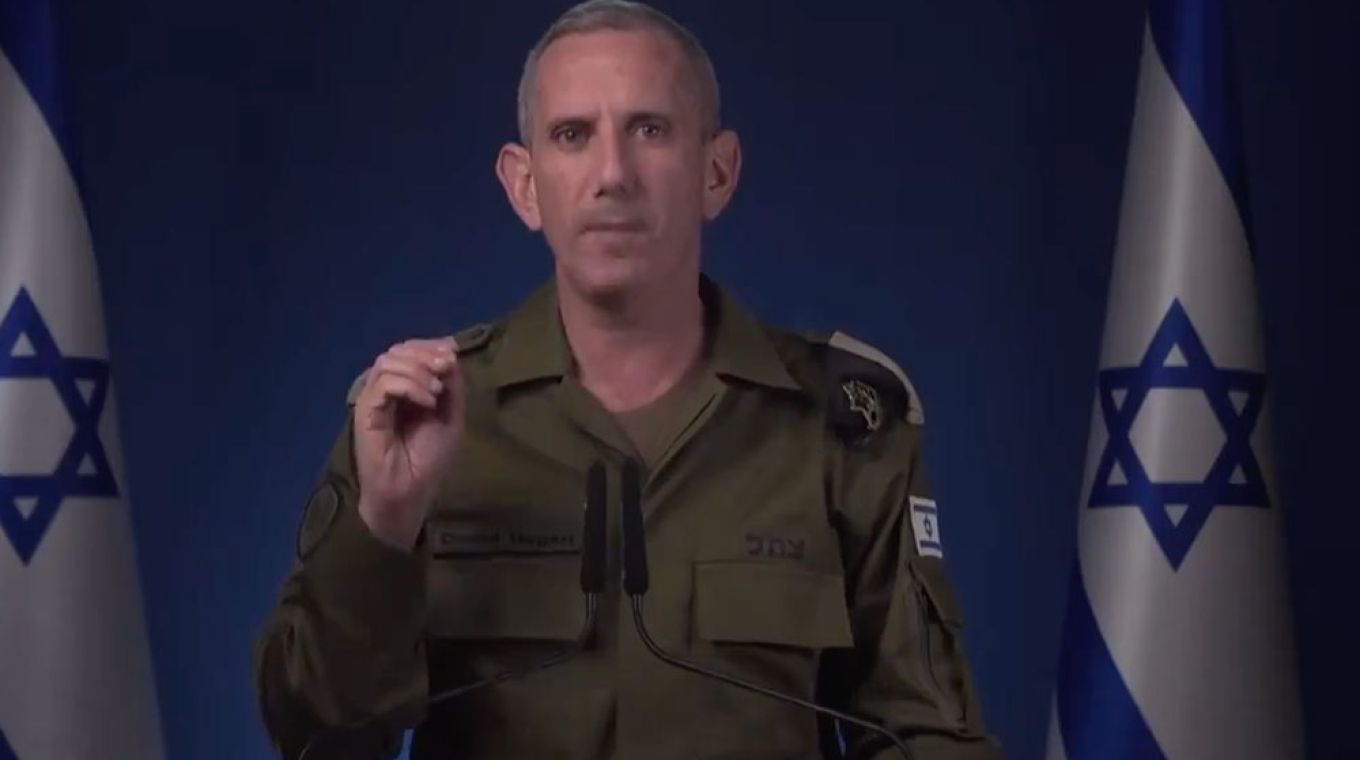Israeli media reports that the targets of the israeli strike were three military sites in Iran, and two other targets in Syria and Iraq.
"In response to months of continuous attacks from the regime in Iran against the state of Israel, the Israel Defense Forces (IDF) are currently conducting precise strikes on military targets in Iran. The regime in Iran and its military proxies in the region have been relentlessly attacking Israel since October 7 on seven fronts, including direct attacks from Iranian soil. Like every other country in the world, Israel has the right and the duty to respond," says IDF Spokesperson Brig. Gen. Daniel Hagari.
Saudi Arabia condemns Israeli military targeting of Iran, says attack is ‘violation of Iranian sovereignty, breach of international law': Foreign Ministry
No mention is made of the history of events that led to this escalation
Iran has been reluctant to respond to Israel's ongoing provocations.
April 1st, 2024
Earlier this year, the IDF bombed the Iranian embassy in Damascus, destroying the building housing its consular section. Sixteen people were killed in the strike, including eight officers of the Islamic Revolutionary Guard Corps (IRGC) and two Syrian civilians.
April 13, 2024
In response, Iran and its Axis of Resistance allies seized the Israeli-linked ship MSC Aries and launched Operation True Promise, executing strikes inside Israel.
April 19, 2024
Israel then conducted retaliatory strikes in Iran and Syria, with the targets announced in advance to allow for the evacuation of military personnel. No casualties were reported. However, Iran demonstrated its capabilities with a wave of drones and a subsequent missile attack, showcasing its ability to saturate Israel's missile defense system.
July 31, S024
Israel conducted the Haret Hreik airstrike to assassinate Hezbollah commander Fuad Shukr. A few hours later, Israel assassinated Ismael Haniyeh, the political chief and negotiator of Hamas. During the presidential inauguration of the new Iranian president, Masoud Pezeshkian, Iran was forced to consider a response. Apparent backdoor diplomacy convinced Pezeshkian to delay this response.
October 1, 2024
Persistent saber rattling from Israel, the ongoing humanitarian crisis in Gaza, and extensive bombing in Beirut and Southern Lebanon—including the decapitation of Hezbollah leadership and Iranian military advisors—compelled Iran to respond with significant missile strikes, targeting Israel's military targets. Nevatim airbase was hit by at least 19 ballistic missiles.
The consequences
Last night's response indicates a lackluster show of support from Israel's western allies. Neither nuclear nor oil facilities were targeted; according to the IDF, only military installations were hit.
Videos of the attack on Tehran reveal intensive actions from a previously unknown air defense capacity, successfully intercepting missiles. These may be the Russian air defense batteries reportedly delivered by Il-76 aircraft that were seen landing in Tehran a couple of months ago.
We will need to await battle damage reports. If the attack caused little damage, Iran may choose not to retaliate. The Iranian government shows little enthusiasm for direct confrontation with Israel and would prefer to focus on improving its economy and engaging with BRICS.


